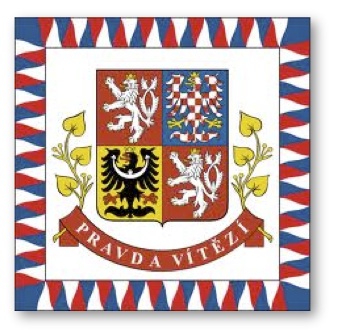
Truth prevails
The presidential flag fluttering above the palace overloking the historic town centre of Prague proudly carries the Czech national motto ‘Pravda Vítézí’: truth prevails.
Vaclav Havel, the playwright-dissident who became president of the newly democratic Czechoslovakia in 1989, made this phrase his own by declaring that ‘truth and love must prevail over lies and hatred’.
Havel knew these thoughts were not original. For every Czech hails the national hero Jan Hus as the spiritual father of the nation. Inscribed in large letters on the great bronze memorial to Hus and his followers, the Hussites, standing in the centre of the Old Town Square, are the words of the martyr: Love one another and desire truth for everyone.
Hus sent this message back to his followers while awaiting sentencing in Constance in 1415, urging them to remember that, whatever happened, truth prevails. The exhortation found permanent expression as the Czech national motto.
The memorial was erected in 1915 on the 500th anniversary of the national hero’s martyrdom, funded by Czech citizens, despite the Great War raging right then across Europe.
Once more, love and truth–the soft powers of Christianity–resurfaced in our awareness, as they have many times on this Heritage Tour.
Bizarre
Prague, one of Europe’s most beautiful cities, was the powder keg for a most ugly phase of the continent’s history, the Thirty Years War, breaking out two centuries after Hus’ death. A bizarre event in 1618 called the ‘defenestration’–when city nobles threw two imperial envoys out of the palace window–ignited the conflagration which spread chaos across Central and Western Europe.
Fortunately for the gentlemen concerned, they landed in a pile of manure, humiliated but unscathed. Unfortunately for the nobles who dared to challenge the emperor’s authority, all 27 of them were condemned to death after the Catholic emperor’s armies defeated Protestant forces at the Battle of White Mountain in 1620.
When the sun rose at 5a.m. on the longest day the following summer, June 21, 1621, the executioner began his gruesome job. Four hours and four swords later, he had chopped off all the noble heads in the Old Town Square. Today 27 white inlaid crosses mark the spot and commemorate the uprising against the powers that put an end to two centuries of religious freedom and reform which had begun with Hus’ ministry, a whole century before Luther’s Reformation.
The Thirty Years War was the backdrop to the life of that other national Czech hero, Jan Amos Comenius, whose name we also encountered on this tour in Amsterdam, Naarden and Herrnhut. Last bishop of the Ancient Moravian Church and acknowledged father of modern education, Comenius suffered personally during the war with the loss of wife and children as well as manuscripts representing years of work.
Appalled by the senseless death and devastation across much of Central and Western Europe, and especially to his beloved homeland, Comenius was often a lone voice calling for toleration, reconciliation and education to counter narrow-mindedness and bigotry of his day as he travelled Europe, pleading with rulers to pursue peace.
Yet tolerance and openness to other traditions was often considered treason. It took a brave soul to propose that what the warring factions had in common was actually greater than what separated them.
Little known in the West, Comenius is still greatly honoured in his homeland and is depicted on the 200 Koruna note.
Anchor
Havel, who ranks with Hus and Comenius as a national hero, also recognised that truth and love had transcendental origins. If democracy was not only to survive but to expand successfully, he said, it had to “renew its respect for that non-material order which is not only above us but also in us and among us and which is the only possible and reliable source of man’s respect for himself, for others, for the order of nature, for the order of humanity, and thus for secular authority as well.
“The loss of this respect always leads to loss of respect for everything else from the laws people have made for themselves, to the life of our neighbours and of our living planet. The relativisation of all moral norms, the crisis of authority, reduction of life to the pursuit of immediate material gain without regard for its general consequences–the very things Western Democracy is most criticised for–does not originate in democracy but in that which modern man has lost: his transcendent anchor and along with it the only genuine source of his responsibility and self-respect.”
Till next week,
Jeff Fountain

This is the first time I have come across somebody put Hus, Comenius and Havel on the same pedestal, and I think you are right. The cultural and social climate of Europe has changed forever, meaning I don’t believe Europe will ever go back to a Christian era and I think that is a good thing, without the Christian values of love and truth there can no just social order because these values are eternal and have their ultimate source in God. The challenge remains how to make these values manifest in our personal and public life. Excellent WW. Thank you!